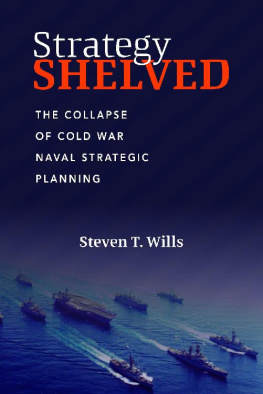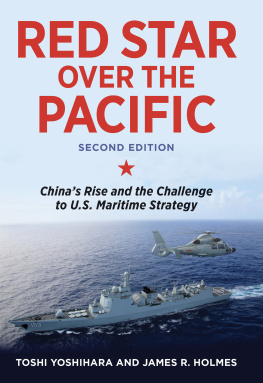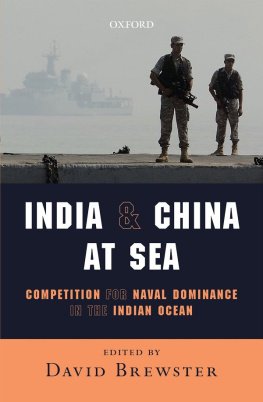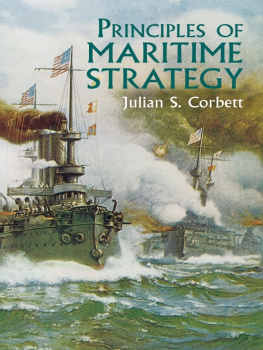THEORIST OF MARITIME STRATEGY
Corbett Centre for Maritime
Policy Studies Series
Series editors:
Professor Greg Kennedy, Dr Tim Benbow and Dr Jon Robb-Webb,
Defence Studies Department, Joint Services Command and Staff College, UK
The Corbett Centre for Maritime Policy Studies Series is the publishing platform of the Corbett Centre. Drawing on the expertise and wider networks of the Defence Studies Department of Kings College London, and based at the Joint Services Command and Staff College in the UK Defence Academy, the Corbett Centre is already a leading centre for academic expertise and education in maritime and naval studies. It enjoys close links with several other institutions, both academic and governmental, that have an interest in maritime matters, including the Developments, Concepts and Doctrine Centre (DCDC), the Naval Staff of the Ministry of Defence and the Naval Historical Branch.
The centre and its publishing output aims to promote the understanding and analysis of maritime history and policy and to provide a forum for the interaction of academics, policy-makers and practitioners. Books published under the eagis of the Corbett Centre series reflect these aims and provide an opportunity to stimulate research and debate into a broad range of maritime related themes. The core subject matter for the series is maritime strategy and policy, conceived broadly to include theory, history and practice, military and civil, historical and contemporary, British and international aspects.
As a result this series offers a unique opportunity to examine key issues such as maritime security, the future of naval power, and the commercial uses of the sea, from an exceptionally broad chronological, geographical and thematic range. Truly interdisciplinary in its approach, the series welcomes books from across the humanities, social sciences and professional worlds, providing an unrivalled opportunity for authors and readers to enhance the national and international visibility of maritime affairs, and provide a forum for policy debate and analysis.
Theorist of Maritime Strategy
Sir Julian Corbett and his
Contribution to Military and Naval Thought
J. J. WIDEN
Swedish National Defence College, Sweden
First published 2012 by Ashgate Publishing
Published 2016 by Routledge
2 Park Square, Milton Park, Abingdon, Oxon OX14 4RN
711 Third Avenue, New York, NY 10017, USA
Routledge is an imprint of the Taylor & Francis Group, an informa business
J. J. Widen has asserted his right under the Copyright, Designs and Patents Act, 1988, to be identified as the author of this work.
Copyright J. J. Widen 2012
All rights reserved. No part of this book may be reprinted or reproduced or utilised in any form or by any electronic, mechanical, or other means, now known or hereafter invented, including photocopying and recording, or in any information storage or retrieval system, without permission in writing from the publishers.
Notice:
Product or corporate names may be trademarks or registered trademarks, and are used only for identification and explanation without intent to infringe.
British Library Cataloguing in Publication Data
Widen, Jerker.
Theorist of maritime strategy : Sir Julian Corbett and his
contribution to military and naval thought. -- (Corbett Centre for Maritime Policy Studies
series)
1. Corbett, Julian Stafford, Sir, 1854-1922. 2. Corbett,
Julian Stafford, Sir, 1854-1922--Influence. 3. Naval strategy--Philosophy.
I. Title II. Series
359.03092-dc23
Library of Congress Cataloguing-in-Publication Data
Widen, Jerker.
Theorist of maritime strategy : Sir Julian Corbett and his contribution to
military and naval thought / J.J. Widen.
p. cm. -- (Corbett Centre for maritime policy studies series)
Includes bibliographical references and index.
ISBN 978-1-4094-3327-9 (hardcover) -- ISBN 978-1-4094-3328-6 (ebook)
1. Corbett, Julian Stafford, Sir, 1854-1922. 2. Naval
historians--Great Britain--Biography. 3. Historians--Great
Britain--Biography. 4. Corbett, Julian Stafford, Sir, 1854-1922--Influence.
5. Naval strategy. 6. Sea-power. I. Title.
DA3.C66W54 2012
359.03092--dc23
[B] 2011041807
ISBN: 978-1-409-43327-9 (hbk)
ISBN: 978-1-315-55121-0 (ebk)
Contents
Foreword
One of the reasons that we in the Corbett Centre for Maritime Policy Studies of Kings College London christened ourselves in the way we did was because of a sense that Sir Julian Corbett still had a lot to offer 100 years after the appearance of his masterwork, Some Principles of Maritime Strategy. At first glance this seems quite a stretch, since things have changed rather a lot over the intervening century. The more advanced and ambitious navies are developing new and unfamiliar roles and capabilities such as operating the national nuclear deterrent or defending fleets and homelands from ballistic missile attack. Moreover they look quite different, deploying naval technologies that are as different in many ways from the battleships and battlecruisers of Corbetts time as those ships were from the fleet of Nelson from which he drew so much inspiration. These days, navies seem preoccupied with contingencies other than major inter-state conflict. Navies also have to worry about how to cope with the diverse challenges to maritime security international terrorism, drugs, arms and people smuggling, illegal fishing and so forth. They put themselves forward as the ideal instrument of peacetime diplomacy. Corbetts fixation on classic inter-state conflict therefore seems singularly ill-suited to all this, and, of course, todays major naval powers are not the same either. Europes fleets are much less dominating than they were; even the United States Navy, the new kid on the block in Corbetts time, is facing the prospect of a transformational decline in its relative power over the navies of China and other rising powers of the Indo-Pacific region.
So what could someone writing 100 years ago, and basing his ideas on the experience of the sailing fleets 100 years before him, possibly have to offer? The question has added point in that the issue is not generally that what Corbett wrote has become outdated, but that he didnt write about many of todays preoccupations at all. Hunting through Corbetts books for advice on the possible naval contribution to todays counter-terrorism tasks is likely to be an essentially unproductive activity, for example.
But even so, close attention to what Corbett wrote still pays major dividends to those who plan, want to use or simply to understand the navies of the twenty-first century. Two points in particular seem to stand out. Firstly, Corbett exemplified the manifold advantages of the maritime approach. He put particular stress on the comparative advantage that the maritime approach has over the continental in its political controllability; the greater capacity to control the political, military and human costs of sea-based endeavour makes the maritime approach uniquely cost-effective, a point that the architects of the Afghanistan campaign are likely to reflect upon with some ruefulness. Secondly, as a lawyer, Corbett was judiciously aware of the limitations of seapower as well as its strengths. He was forever warning his naval audience of the dangers of







